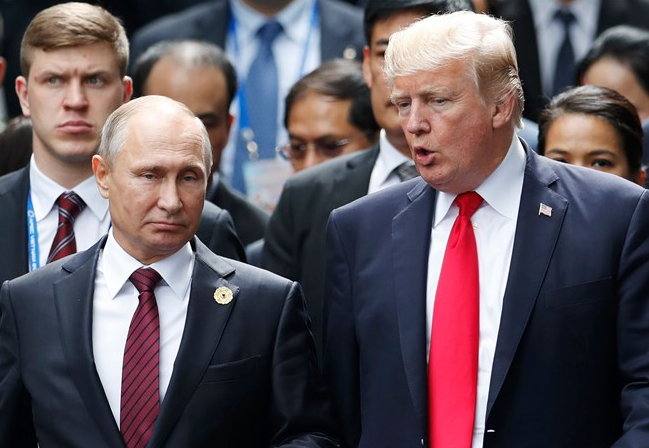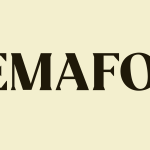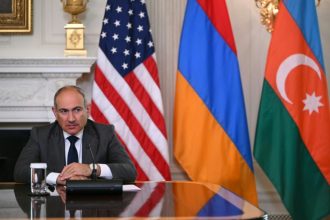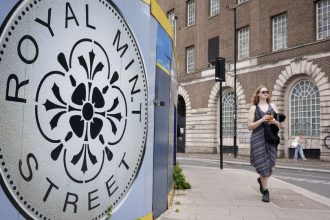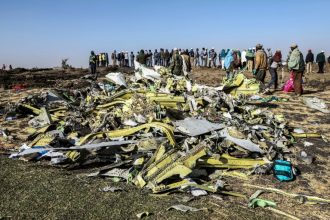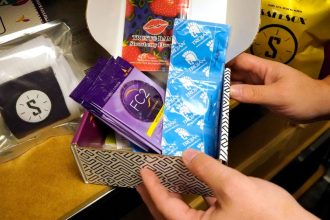Russian President Vladimir Putin has agreed to allow the United States and its European allies to offer Ukraine security protections resembling NATO’s Article 5 collective defence clause, according to US envoy Steve Witkoff, AP reported.
Speaking Sunday on CNN’s State of the Union, Witkoff said the agreement came during Friday’s summit between President Donald Trump and Putin at Joint Base Elmendorf-Richardson in Alaska.
“We were able to win the following concession: That the United States could offer Article 5-like protection, which is one of the real reasons why Ukraine wants to be in NATO.
“It was the first time we had ever heard the Russians agree to that,” Witkoff said.
The development marked a shift in ongoing negotiations to end the 3½-year war in Ukraine, though no final agreement has yet been reached.
European Commission President Ursula von der Leyen welcomed the announcement at a news conference in Brussels, where she appeared alongside Ukrainian President Volodymyr Zelenskyy.
“We welcome President Trump’s willingness to contribute to Article 5-like security guarantees for Ukraine.
“The ‘Coalition of the Willing’—including the European Union—is ready to do its share,” she said.
Witkoff described the security guarantees discussed at the summit as “game-changing” and noted that Russia also committed to making a legislative pledge not to pursue additional Ukrainian territory.
However, he acknowledged that some of the most sensitive issues, including territorial negotiations, remain unresolved.
“The fundamental issue, which is some sort of land swap, which is obviously ultimately in the control of the Ukrainians, that could not have been discussed at this meeting.
“We intend to discuss it on Monday. Hopefully, we have some clarity on it, and hopefully that ends up in a peace deal very, very soon,” Witkoff said.
Zelenskyy responded cautiously, thanking the US for its support while calling for more clarity on how such security guarantees would work in practice.
“It is important that America agrees to work with Europe to provide security guarantees for Ukraine.
“But there are no details on how it will work, and what America’s role will be, Europe’s role will be, and what the EU can do. This is our main task. We need security to work in practice like Article 5 of NATO, and we consider EU accession to be part of the security guarantees,” Zelenskyy said.
Witkoff defended the Trump administration’s shift away from demanding an immediate ceasefire, suggesting progress in other areas had opened the door to a broader peace deal.
“We covered almost all the other issues necessary for a peace deal.
“We began to see some moderation in the way [the Russians] are thinking about getting to a final peace deal,” he said.
Secretary of State Marco Rubio, who was present at the summit and also serves as Trump’s national security adviser, emphasised that failure to reach a ceasefire would have consequences.
“Now, ultimately, if there isn’t a peace agreement, if there isn’t an end of this war, the president’s been clear, there are going to be consequences,” Rubio said on ABC’s This Week. “But we’re trying to avoid that. And the way we’re trying to avoid those consequences is with an even better consequence, which is peace, the end of hostilities.”
Rubio also warned that imposing new sanctions on Russia at this stage could derail peace talks.
“The minute you issue new sanctions, your ability to get them to the table — our ability to get them to the table—will be severely diminished.
“The best way to end this conflict is through a full peace deal,” he said during an appearance on NBC’s Meet the Press.
However, Rubio cautioned that while progress had been made, the talks are far from complete.
“We made progress in the sense that we identified potential areas of agreement.
“But there remain some big areas of disagreement. So we’re still a long way off
Zelenskyy and European leaders are scheduled to meet with President Trump at the White House on Monday to continue discussions.
“I think everybody agreed that we had made progress. Maybe not enough for a peace deal, but we are on the path for the first time,” said Witkoff.


